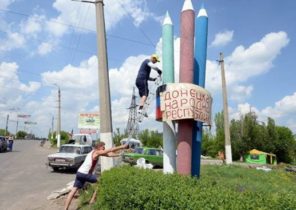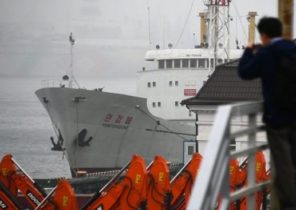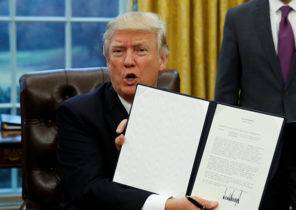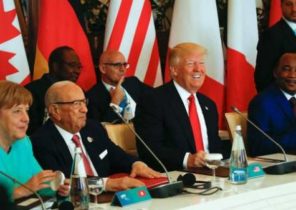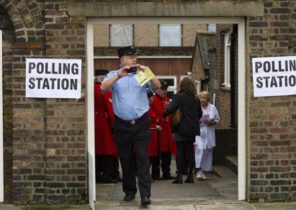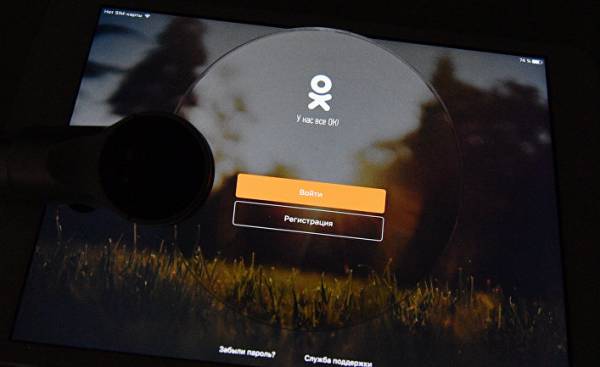
Russia is trying to turn into a weapon the way people exchange information. The West is only now starting to understand what constitutes this new form of war, and how it should be fought.
Long before the attempts by Russia to influence last year’s presidential elections in the US and French elections this year, Ukrainian lawmakers sounded the alarm over Russian intervention. The Ukrainians called the Russian cyber attacks “hybrid war,” a Ukrainian government this month finally decided to act.
The President of Ukraine Petro Poroshenko, in accordance with the decision of the Council of national security and defence, forbade the Russian sites, social networks and advocacy organizations in the field of media, who posed as legitimate news sources. This decision is part of a wider set of sanctions against Russia, designed to restore nothing like a full cyberserial Ukraine.
The ban affects the Russian equivalents of Facebook, called Vkontakte (VK), Odnoklassniki and Yandex. These sites are constantly watched and used them for information in the Russian spy Agency, the Federal security service. It is impossible to exaggerate the danger of such activities for Ukrainians. Ukraine has long been a testing ground for new types of Russian aggression.
Russia is using in Ukraine, both physical and psychological methods of influence. Its purpose is to sow discord and to destabilize Ukraine. During the Russian invasion of 2014 on the Ukrainian Crimean Peninsula and the ongoing conflict in Eastern Ukraine, Russia has used and continues to use a variety of propaganda techniques, and cyber attacks. Using personal information collected in social media platforms, Vkontakte and Odnoklassniki, Russia is aiming to address the ethnic Russian carefully prepared messages, trying to cause ethnic tensions. In addition, the Pro-Russian terrorist group called “the Battalion” Somalia opposes Ukrainian troops in Eastern Ukraine, used the network of “Vkontakte” for the recruitment of ill-informed volunteers for military service.
Recently the same social network promoted and supported the online phenomenon called the “Blue whale”, whose essence is to inducing children and adolescents to commit suicide. The social network “Vkontakte” “Blue whale” looks like a online game, but it has become the cause of many tragic deaths. Even worse is the fact that Russian ability to influence young people is reinforced by the Kremlin’s ability to collect and analyze personal data of Ukrainian users located in the Russian social networks, including “Vkontakte” and “Classmates”.
Such Russian mass media as the television network Russia Today is also prohibited now in the Ukraine. The RT is a cornerstone in the recent Russian propaganda blitzkrieg. Russia is using RT and other such TV channels for distribution of false information and “fake news”. The democratically elected Ukrainian leaders, they are usually called “Kiev junta”, which is “illegal” is in power. These channels like to compare US policy and Ukraine with the policy of Nazi Germany.
Ukraine is satisfied with the fact that it actively opposes these dangerous lies. We are talking about national security.
It should be emphasized that Ukraine continues to defend freedom of speech and freedom of expression. However, these freedoms are not applicable in this case. Nobody has the right to distribute false reports or collect personal information for their advancement. Even the Director of Mohyla school of journalism Yevhen Fedchenko has supported a ban on Russian social networks, calling the actions taken as “the greatest contribution to the protection of the information sovereignty of Ukraine”.
The North Atlantic Treaty organization (NATO) came to a similar conclusion: “the Ukrainian government has made clear that the decree relates to issues of security but not freedom of speech.”
Neither the UN nor any government in the West has not spoken out against taken by Ukraine of the action.
Critics in Russia and its satellites will continue to compare Ukraine with North Korea, with its widespread control over the media. However, they overlooked a good comparison with the situation in South Korea, which usually blocks a propaganda web sites operated by its Northern neighbor. These critics, of course, will not say that for Russia there’s an easy path leading to the lifting of sanctions. Only need to stop the war against Ukraine and to withdraw its troops from the Ukrainian land.
Dmytro shymkiv Deputy head of presidential administration of Ukraine and Secretary of the National Council of reforms.

